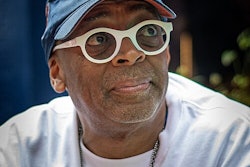If you want to know at any given moment what a portion of Black America is concerned with or talking about, plug into the rapidly exploding social media phenomenon referred to as Black Twitter.
Pointed hashtags such as #JusticeforTrayvon, #Blacklivesmatter, #Sandrabland, about the death of a young Black woman while in police custody in a small Texas town, and most recently #SamuelDubose, who died at the hands of a Cincinnati police officer, have become the shocking jumping-off points for sharing of information, stimulating conversation and mobilizing groups to initiate corporeal protests.
As folks now say: it’s a thing.
“Black Twitter was instrumental in marshaling people and energy around issues like police shootings of unarmed African-Americans in Ferguson and beyond,” says Karen Grigsby Bates, a veteran journalist and the Los Angeles-based correspondent for National Public Radio (NPR). “It brought attention to aggressive policing before op-ed writers started to weigh in on the cause.”
A few years ago, it may have been easy to dismiss Black Twitter as a digital echo chamber, whose adherents had no interest in what the rest of America were talking about and couldn’t care less about crossing over. But for many, who for years lamented the lack of a vibrant civil rights movement, here is a rolling, amorphous, but decisively effective movement built on the serpentine back of social media.
What social media did for the Arab Spring, it’s now doing for a litany of issues that have always been percolating just beneath the American consciousness but have been top of mind for African-Americans.
“#Ferguson was the most used hashtag last year, and that was not just Black Twitter, but Twitter overall,” says Cheryl Contee, CEO and co-founder of Fission Strategy, a company that builds social media campaigns for social causes. “There are people who are seeking me out to have dialogue, and I’m open to that dialogue, and I will never meet those people.”
Of course Black Twitter, whose community includes social media savants, ordinary citizens and celebrities, isn’t just confined to serious issues of racial justice or the politics of the day; it’s insinuated itself throughout the culture, especially entertainment.
“On the reverse tip, Black Twitter (and Facebook) helped elevate Shonda Rimes’ Scandal to success status very early on. And made Empire an instant hit,” says Grigsby Bates. “Both became true must-see TV in large part, because those shows understood the value of social media in general and Black Twitter in particular, and engaged with the audience.”
In one episode of the fictional Empire, a FOX nighttime soap about the volatile music business, guest star Patti LaBelle referenced real life by saying she was going to donate to the #Blacklivesmatter campaign.
And let’s not forget the hilarity that continues around #AskRachel, a humorous rejoinder to the story about Rachel Dolezal, the White former head of a local NAACP chapter who was passing for Black. All of this has been facilitated by the fact that people of color are over-indexing — participating disproportionately — when it comes to social media, according to the Pew Research Center.
“Minorities, millennials and mothers are the demos [demographics] that use and purchase. Those people are the drivers, period,” adds Contee. “When you account for mobile online, minorities over-index.”
Targeting Black Twitter could also provide marketers ready access to Black consumers who over-index in purchasing specific products.
In a move that added legitimacy to its existence and importance, the Los Angeles Times hired a reporter to cover Black Twitter.
“As to why the Times hired Dexter Thomas to cover Black Twitter,” says Grigsby Bates, “when I interviewed her, S. Mitra Kalita, the L.A. Times managing editor for editorial strategy, told me there were a couple of reasons: Having a reporter follow Black Twitter, she said is a way to have journalists ‘tap into conversations that they might not have heard otherwise.’ And keeping an eye on Black Twitter allows them a jump on the news before it bubbles up to national notice.”
What all this translates to going forward is anyone’s guess — but it definitely can mean more chatter around major issues of importance to African-Americans, and more institutional and governmental transparency, as single incidents become part of the national conversation overnight.
But Contee says, “The challenge for them is to create representatives who can engage with people in power.”
Nick Charles is the former editor-in-chief of AOL Black Voices. Follow him on Twitter @nickcharles61.


















